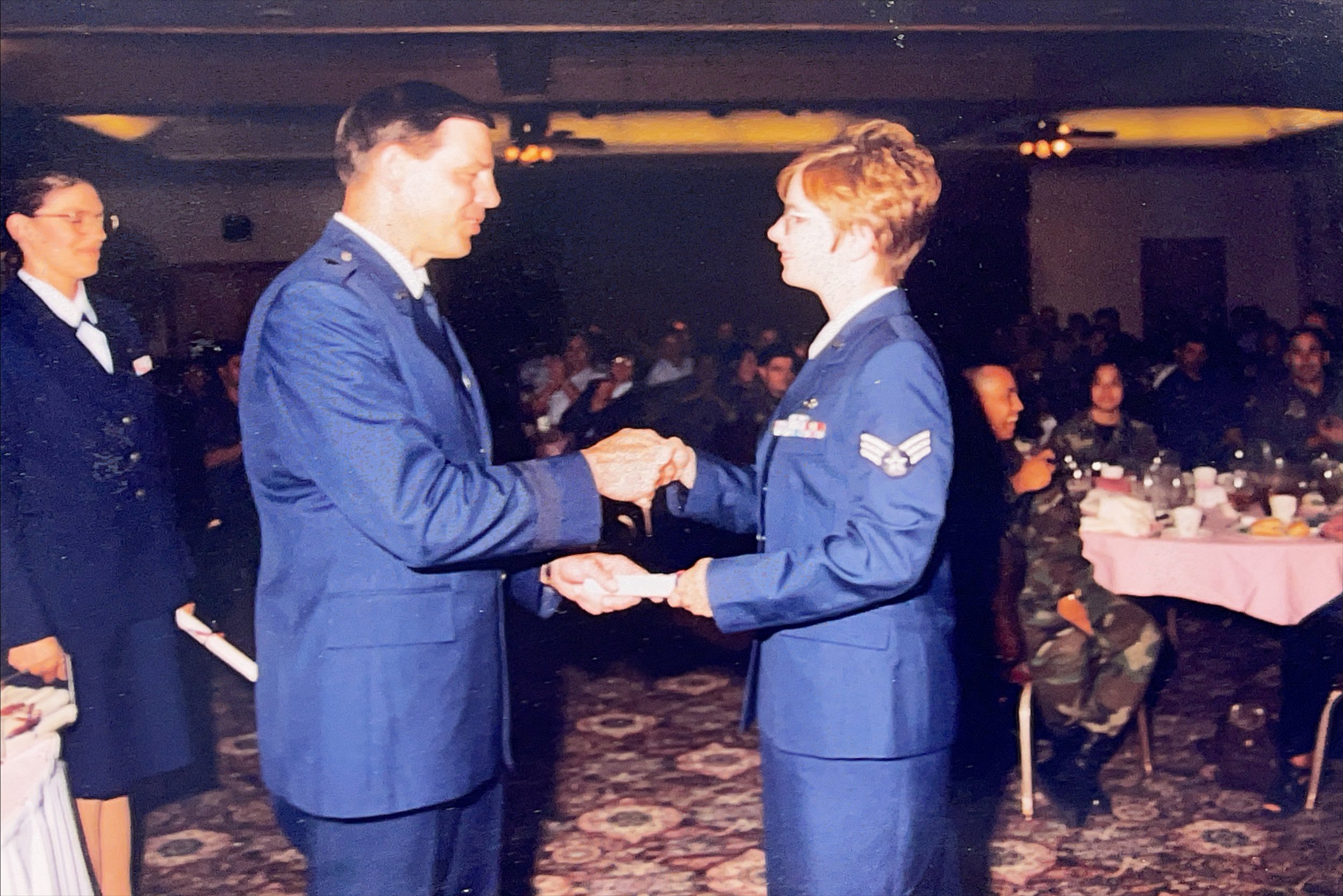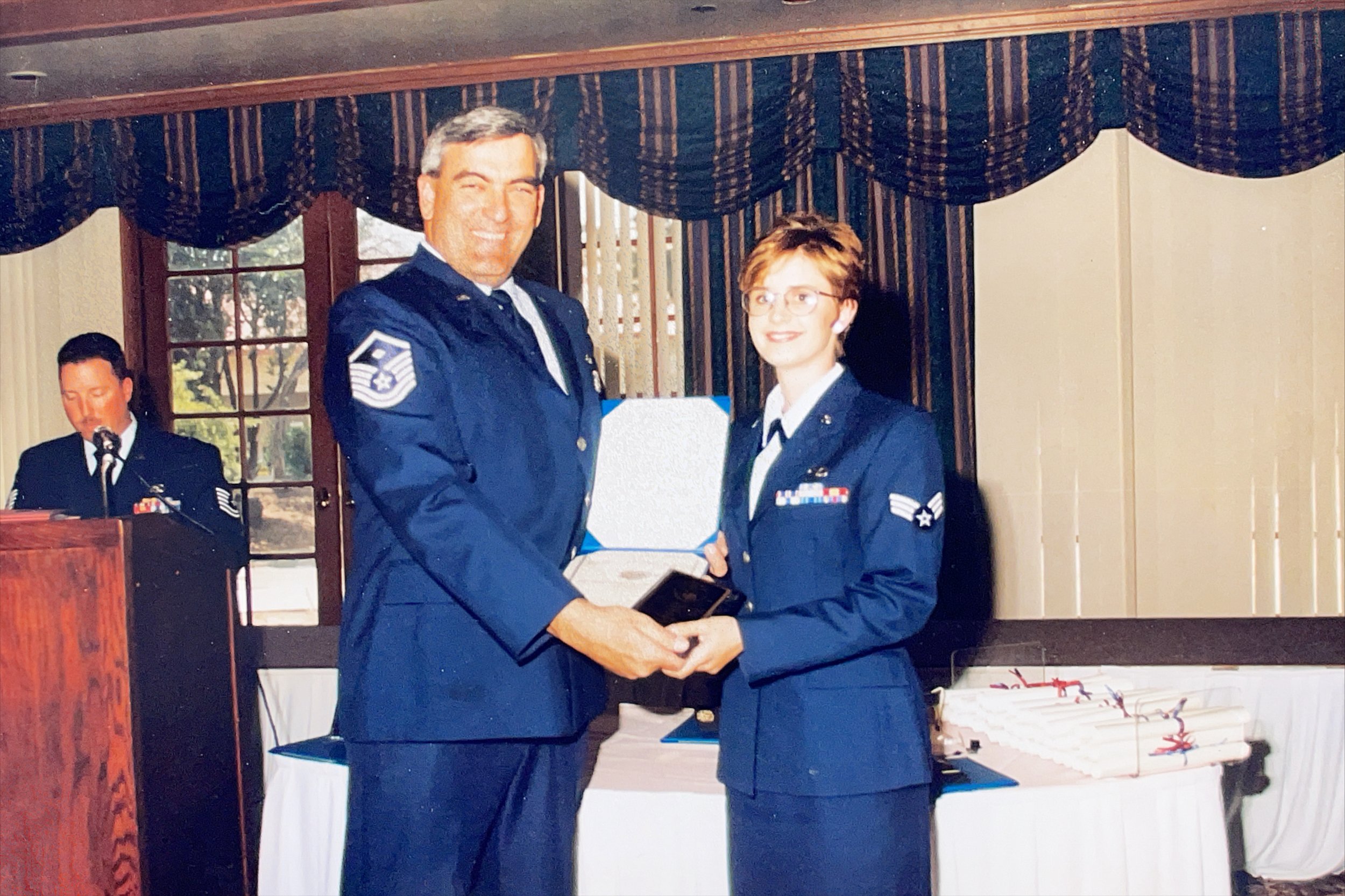Feature: From service to Country to Service to County.
Thank you for all you continue to do and your service to the United States of America.
The National Association of County Administrators wanted to dedicate this article to highlighting the veterans in our county community. Below are some amazing stories, advice to veterans, and wisdom of experience from veterans currently serving in county government. See what they have to say about their experiences below.
County Veterans
Michael Colbert, County Administrator, Montgomery County | U.S. Army
Military Service Positions Veterans For Success in Public Service
It has been great to see the outpouring of support for our Veterans in November! As I reflect on my four years in the Army, I think of how my service has uniquely positioned me to succeed in Public Service.
People who have served in the U.S. military, especially those who were in over the course of many years, bring first-rate leadership and crisis management skills. Veterans have also shared a sense of teamwork and camaraderie that you don’t often see outside of the military.
Preparing the Next Line of Leaders
One thing that I think is incredibly special about veterans, that you don’t find almost anywhere else, is that they are constantly training themselves and training others. This is done so that work can continue even if a key player is missing. I don’t think you see that often outside of government.
Veterans are taught that if the mission fails, then they have not properly trained their teams, and the fault lies with the leader. There is not a “star” of the show in the military – team success is the only way to succeed.
Support Staff Guiding Good Decisions
Life in the Army taught me that good leaders will consider the information provided by the people who work for them to make informed decisions. Many military veterans within the county have a great work ethic – they’re used to digging in and getting things done with great attention to detail – and I trust in their areas of expertise.
There are ripples to every decision we make, and it is vital to rely upon the knowledge and skill of those you work with to anticipate and avoid possible consequences.
In my role as County Administrator, I work with many intelligent directors and teams that cover specialized service areas. I strive to build a cohesive team, much like I did in the Army. They need to know that I have their back, just like they have mine.
If something went wrong or a mistake was made, I expect my directors to come to me and lay out the scope of the issue with the best information they have and what they believe the best course of action is. I believe this line of open communication helps me retain talented people, which in turn benefits the county as a whole. Plus, we all stay in good standing with our leadership when they know we are doing our best to support the citizens we serve.
A Great Transition
I think veterans also view work in local government as a good transition from active-duty military work to retirement. Local government jobs are steady and reliable, just like defense department jobs, but the work usually does not involve making life and death decisions. Your schedule in government is much more reliable as a 9-to-5 than it is in the service, plus you support programs and services developed to help citizens.
Our veterans also come to us with extensive combat arms and crisis response skills, which makes them a great fit for working with the Sheriff’s Office or our Emergency Management staff. Veterans have years of training in identifying suspicious activity and responding to threats.
Connecting for Employment
The military teaches you discipline and a way to conduct yourself that serves you well no matter where you work. I’d encourage any veteran to attend our Job Fairs and apply for a county position if they would like to be considered. We are an equal opportunity employer and, like the military, we have an excellent retirement program. The county also has great benefits, including Paid Personal Leave and 12 paid holidays a year.
Don’t discount your service, even if you have had a job that doesn’t seem to translate well into civilian life. You may have been an aircraft mechanic or - weapons loader – no, we don’t have those jobs, but people who do are typically detail oriented and like to work their hands. That’s something we can work with.
Rewards of Service Continue
County government gives you a chance to improve the lives of your fellow citizens. We embrace many of the same values the military does. If you can navigate the military, you should be very comfortable in county government.
There is great satisfaction in working as a team to accomplish something that will help people who really need help. I found that in the military, and I find it here with Montgomery County as well.
Michael Colbert is the current Montgomery County Administrator who previously served on the Governor’s Cabinet as Director of Ohio Department of Job and Family Services.
Dawn Marie Buckland, Chief Deputy Assessor, Maricopa County | U.S. Airforce
Military service provides us with so many opportunities and experiences. As an Air Force veteran and wartime readiness manager, I quickly found that there were many transferrable skills from the Air Force to county and city management. After all, a military base is a self contained city, and my job was to ensure that we had the personnel, training and equipment that every squadron (read department) from emergency management to transportation needed to successfully accomplish their purpose. The military also provides immersive leadership training throughout ones career. We are as comfortable as one can be with courageous conversations and written evaluations; skills that many of our civilian counterparts find terribly uncomfortable.
As we approach our retirement or separation, we tend to anticipate that “the real world” will be different in some ways. We look forward to the flexibility our new career might afford, while simultaneously wondering if our colleagues will be less disciplined or if absenteeism runs rampant. Some differences, though, are more difficult to anticipate and prepare for success. Military service provides exceptional leadership training. We have taken responsibility for national defense and for the lives of those we’ve overseen. Yet we are entering our next career often lacking in some basic fundamental management skills. This makes for a difficult adjustment. Humility is essential to success.
There are a couple of key areas with which we need to get additional training and be willing to think differently.
Personnel/HR
In our civilian roles, we no longer receive orders from headquarters notifying us of inbound personnel who will be assigned to us. We have to learn how to recruit for positions, review applications and resumes to decide who to interview, develop questions, conduct interviews, evaluate the applicants, and consider pay equity. We have to learn completely different approaches to performance management, and heaven knows we didn’t have to fire people before.
Invest in formal training in these areas, and intentionally execute on the skills you learn. Find a mentor (even unofficially) from whom you can learn what has worked well and what has not. Find out who in your organization is exceptionally good at hiring great team members; talk with them about their strategies and invite them to be a part of your interview panel. Talk with your HR team about performance management and successful approaches to progressive discipline.
Operations
We think we are prepared to manage large and complex operations, and in many cases we are. We also come from a world with higher-headquarters-issued regulations, quick reaction checklists, emergency action checklists, standard operating procedures… you get my drift. In all likelihood, there will be areas of your operations where these tools are noticeably absent. Yet we and our teams are accountable for achieving results which themselves may not be clearly defined, let alone the processes to get there. “That’s not fair!” we say. Maybe so. And we have to do it anyway.
This is not fixed over night, and you will still have to get the job done. Allow the team to continue putting one foot in front of the other, course correcting as necessary to get across the finish line. Simultaneously start the improvement process. Be forewarned: you won’t have time to do this now, next year, or ten years from now. Oftentimes the only way to make true meaningful improvement is incrementally. Commit to spending 15 minutes a week to making progress. Start with the end in mind.
Have those that actually do the work begin documenting the current state processes. As you get to the point where you are ready to begin identifying opportunities for improvement, consider hiring a consultant who can facilitate process improvement from an unbiased perspective, bringing out the expertise in all of the stakeholders.
Your military experience provides tremendous advantages in leadership, but in its very nature limits your exposure to certain important management skills. You can build success through humility, training, seeking wise counsel, and giving yourself and your team grace along the way.
James Zenner, Director of the Department of Military and Veterans Affairs, County of Los Angels | U.S. Army
Personal Journey
I joined the Los Angeles County Department of Mental Health in 2018 to create the Veteran Peer Access Network (VPAN) after working in the non-profit sector and the Veterans Administration for eight years prior as a social worker assisting veterans, focusing on peer support program development to increase access to benefits and services along with increasing help-seeking behavior. In 2022, I was appointed by the Los Angeles County Board of Supervisors as the Director of the Department of Military and Veterans Affairs (MVA)
My journey with local government started in middle management at the largest mental health institution in the country with close to a $3 billion budget. My biggest challenge was that I had no idea about how to get things done administratively, despite knowing how to lead and identifying the need. My persistence led to meeting the right people to figure out how to move projects forward.
I attribute my success in launching an innovative peer support program to leadership lessons learned in the military, of working in an environment where the mission always came first. It was important when leading to keep decisions grounded in what was best for those we serve regardless of how things were done in the past. As the current department head of MVA, my focus has shifted to ensuring that I am a good partner to county departments, state, and federal partners, as well as the community.
Advice for Aspiring Veterans
Advice I received that was helpful was, “always say yes” when asked to take on tasks. This is counter to the advice I received from fellow junior enlisted while in the military that I chose to ignore which was “don’t volunteer for anything”. Volunteering to take on more is critical for many reasons, to include learning how the larger system and the organization works as well as branding yourself as a go-to asset for leadership.
Additionally, never underestimate the power of change management when leading. Alliances equals effectiveness when working in local government and your team needs to buy in to your vision and trust that you are going to take care of them and make the right decisions. It is always quicker to build alliances from a neutral starting point than having to repair ruptured relations before getting to the alliance building.
During the first year or two after separating from the military and making Los Angeles County my family’s new home, I experienced a lot of confusion while attending graduate school. The culture clash between the world I had been living in in the Army and my new world of graduate studies in social work in Los Angeles was the biggest social challenge I have ever endured. One day I decided that when someone said something that clashed with my morals, values, or just didn’t seem right, I would ask them if I could walk with them to our cars and speak with them. I quickly learned that sometimes people say things because they feel pressured to do so by their environment or that my own assumptions about others could lead to feelings of isolation which might in turn lead me to isolate myself. By doing so, I would prevent myself from learning more about the person and why they believed what they believed. This was my first lesson following military service on overcoming my tendency to make assumptions which can negatively impact my mood, behaviors, and performance in the workplace and at home.
Unique Perspectives
Military training and experience are very translatable to service in local government. In both situations, we serve people, require a mission-driven attitude to be successful, are part of something bigger than ourselves which will continue after we retire or separate, and are given direct orders from elected officials.
The military provides some of the best leadership training in the world, which includes being responsible for expensive equipment, at times making life or death decisions, and just the sheer experience of working in one of the most diverse organizations that exists. Often, we can feel let down or underutilized when we leave service because our skills are not translatable, or we don’t always know exactly how to sell our military experience and we feel like we are going backwards or there is no sense of purpose. Local government can provide an environment where it’s worth taking a few steps back if necessary, provided leadership clearly communicates the vision and mission, or at least the opportunity to lead and cultivate the kind of purpose and mission we had in the military with the teams we lead now.
Conclusion
My ability to have a lot of impact in my first five years of county service is probably the most enjoyable aspect of being a local government employee in Los Angeles County. Working for an entity that takes care of its people and ensures their quality of life brings a lot of satisfaction and purpose into what I do. One aspect of my work which keeps me motivated is the leverage that comes with my position to open doors for others and help them along to becoming leaders in the community. Additionally, I enjoy being the face of the county to our local, state and federal partners and working with them on issues like homelessness, suicide, justice system reform, and more in LA County. My goal is for our department to encourage reliable partnership in others by being reliable partners ourselves.
Overall, Los Angeles County has been a great place for me to work and live. I’ve rediscovered many aspects that I enjoyed about being in the Army. like being able to give back, continuing to be about something larger than myself, and improving and protecting our way of life. These values have made all the difference for me as I’ve reintegrated into my country and community after serving in the military.
A special thanks to the authors of these three articles and their service to the United States of America.
If you are a veteran or know of a veteran who would be interested in writing for the NACA Journal of County Administration’s next issue, please reach out to naca@icma.org for more information.







